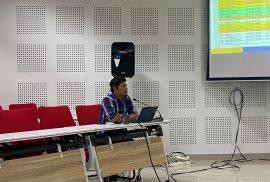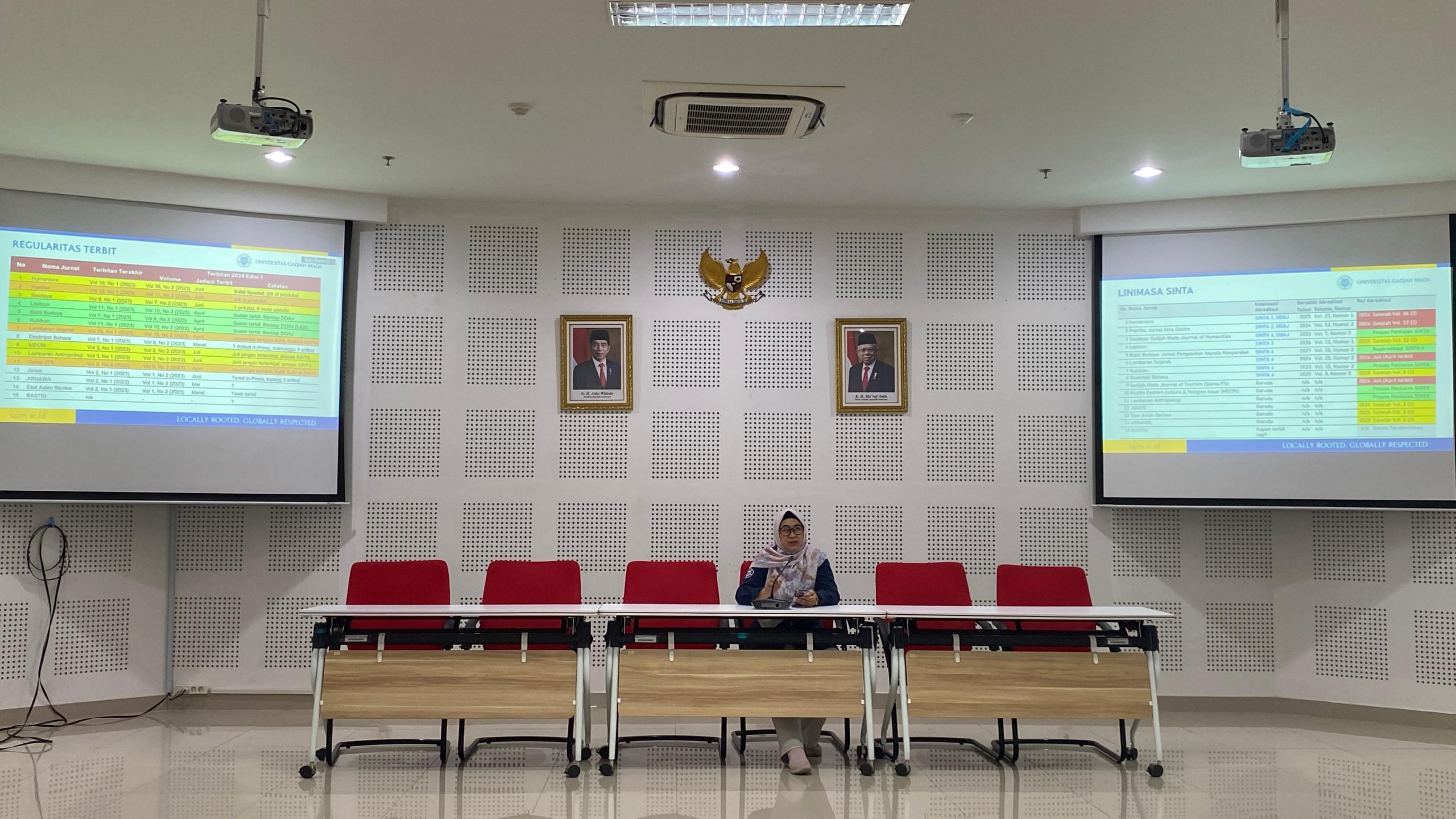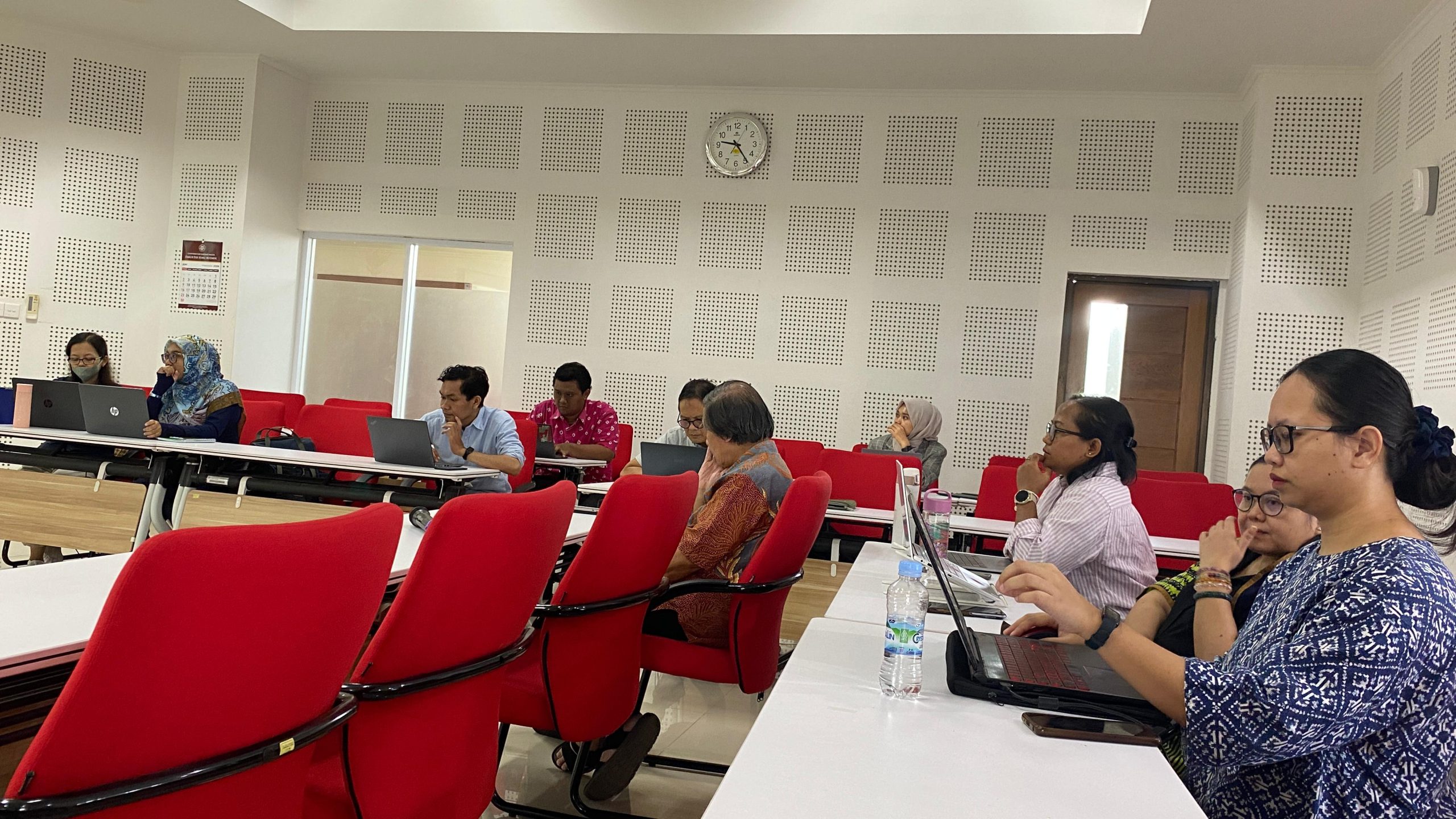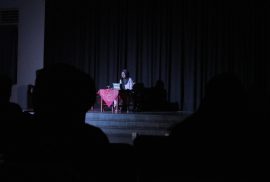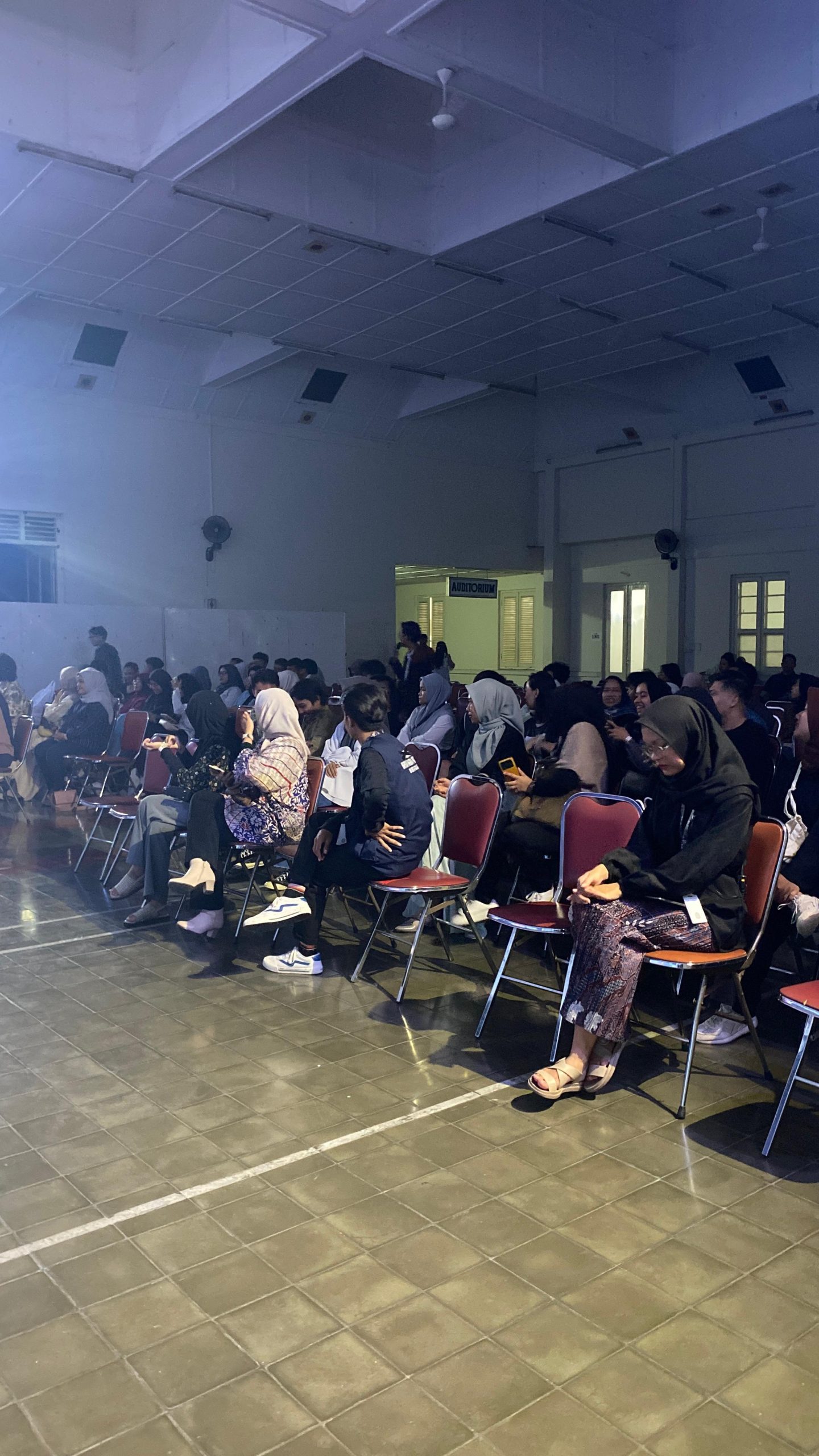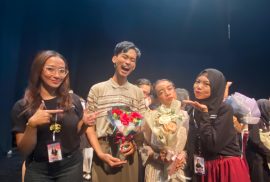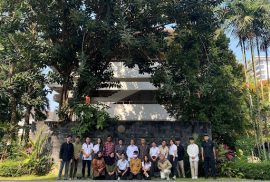On Wednesday, June 26, 2024, the auditorium of Faculty of Cultural Sciences UGM witnessed an enthusiastic 9:30-11:00 event. The event began by watching an introductory video about Universitas Gadjah Mada and the Faculty of Humanities, followed by an interactive quiz about the video content. Students and teachers enthusiastically participated in this quiz, with the winners getting souvenirs as awards.
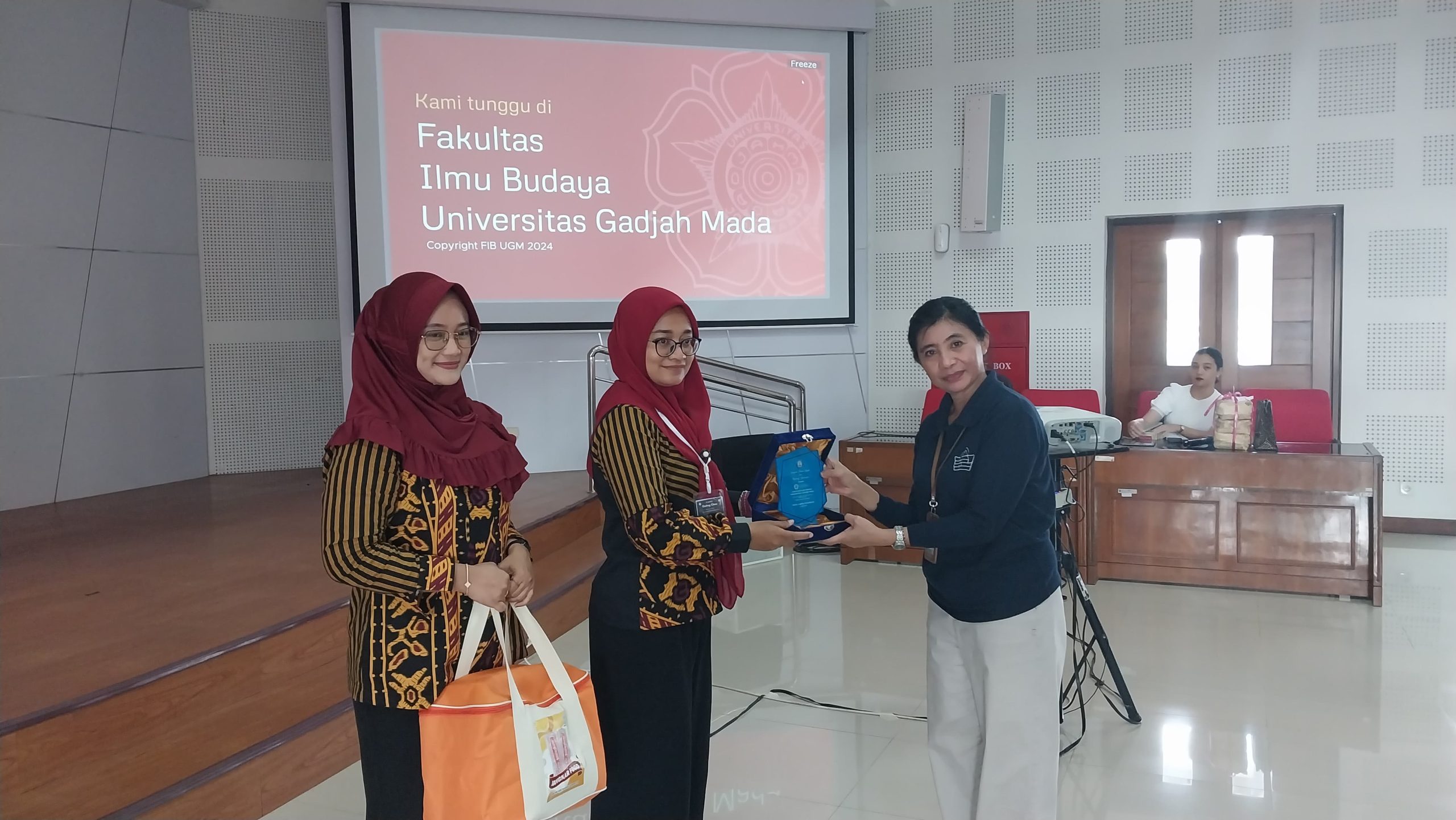
This was followed by a presentation by the Public Relations & Cooperation Unit using a PowerPoint presentation that explained in depth about the campus and faculty. A question and answer session was then held, where students asked various questions related to the excellent programs offered, the possibility of admission through organizational achievement pathways, requirements for automatic admission for high schools with parallel number one rankings, plans for new study programs, and the possibility of UKT increases.
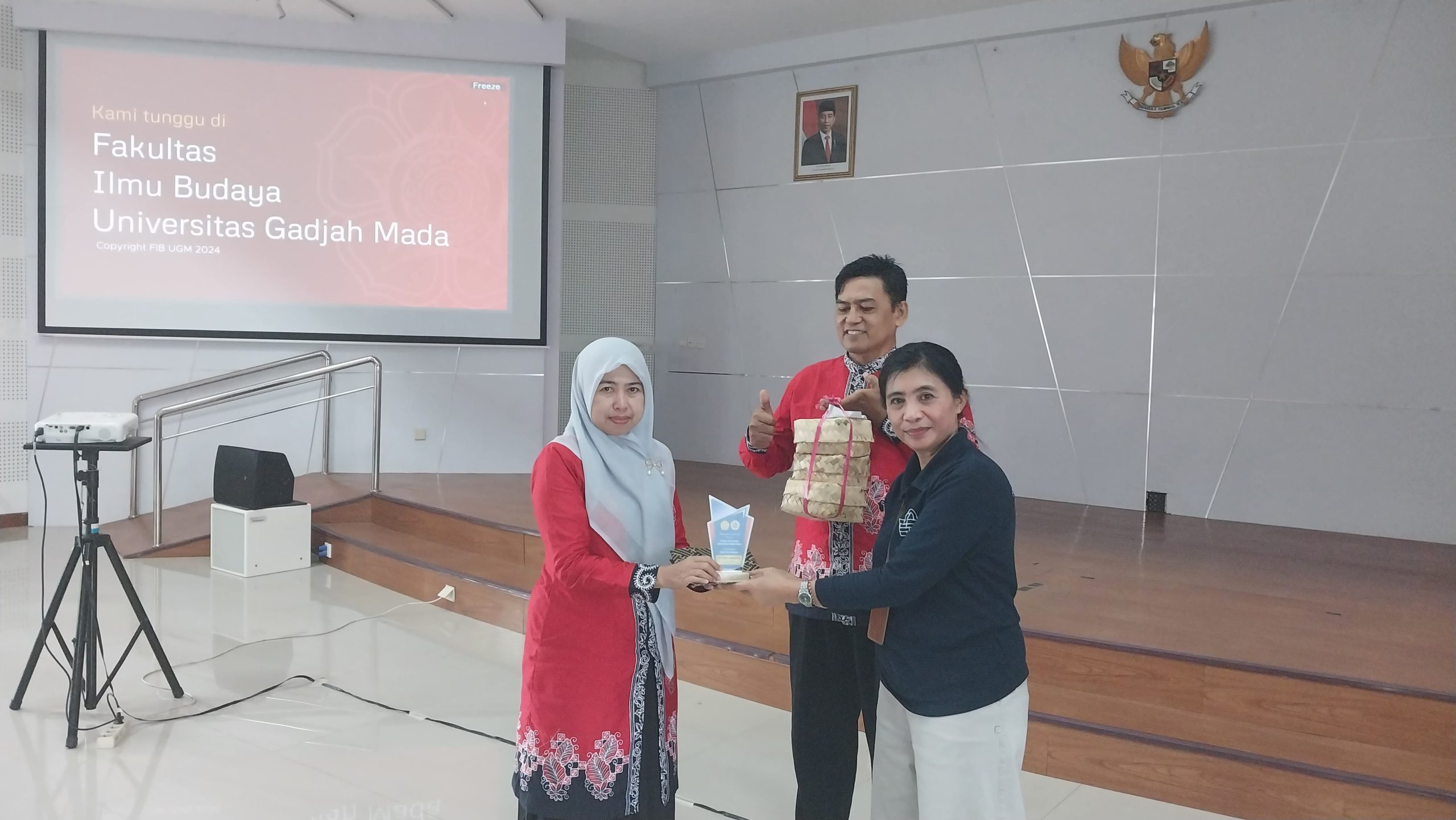
The event was also colored by the handover of souvenirs from each school to FIB UGM as an expression of gratitude and support. The excitement of the event reached its peak with a group photo session as a closing that captured precious moments for all participants. This event is not only a forum for information and interaction, but also strengthens the relationship between FIB UGM with the education community and society at large.


